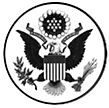
|
ONE AMERICA IN THE 21st CENTURY The President's Initiative on Race |
| | |

|
ONE AMERICA IN THE 21st CENTURY The President's Initiative on Race |
| | |
|
Washington, D.C. On Tuesday, January 13, members of President Clinton's Advisory Board on Race will visit three organizations in Phoenix to learn how issues such as increased racial diversity and cultural awareness are handled among local managers, employees and clientele. The visits coincide with the Advisory Board's next regular meeting, to be held in Phoenix, on January 14, that will focus on race and the workplace. The three site visits that Board members will make are to: Arizona Opportunities Industrialization Center, held in conjunction with Chicanos Por La Causa and the Phoenix Indian Center; the Maricopa Integrated Health System; and Arizona Public Service. These organizations were selected because they represent efforts that are successfully bridging racial divides, efforts the Initiative describes as promising practices. The identification of Promising Practices, both community-based and national efforts, is an integral part of the Race Initiative's mission. The Arizona Opportunities Industrialization Center, Chicanos Por La Causa and the Phoenix Indian Center offer employment and educational training programs. With a client-base largely composed of ethnic minorities and economically disadvantaged citizens, Arizona OIC has served more than 25,000 people and placed more than 18,000 in jobs since 1967. For 28 years, Chicanos Por La Causa has worked with the poor, largely Hispanic, South Phoenix community to improve education and vocational skills. In 1996-97, it achieved a 62 percent placement rate with an average adult placement wage of $7.08 an hour. The Phoenix Indian Center is a multi-faceted social service organization that provides employment training, education and support services primarily to Phoenix's American Indian community. The Maricopa Integrated Health System, a service of the Maricopa County government, is the primary source for low-income health care in Phoenix. In 1995, its Community Relations Department created the Customer Service and Cultural Diversity Program to improve the cultural sensitivity shown towards patients. The program consists of two sections: the Culturally Specific Care Committee, responsible for developing resource lists of alternative healers such as Eastern/Asian practitioners and Native American tribal healers, and the Cultural Diversity Program, which educates staff on various cultures. In 1996, Arizona Public Service, a major provider of public utilities, initiated the Academy for the Advancement of Minority and Women Owned Enterprises Program to provide advice to minority-and women-owned business owners on how to become more successful. The program offers classes on key business-related issues that are relevant to those companies. Arizona Public Service also created the Arizona Minority/Women Owned Input Team in 1995 so that representatives from the utility company's procurement office can meet with large local companies and minority/women-owned businesses to discuss how partnerships can be formed between these large companies and the minority/women-owned enterprises. The visits will occur concurrently, with 1-2 Board members present at each site.
WHAT:
WHEN:
WHERE:
Maricopa Medical Center--William Winter, Board Member, and Laura Harris,
Senior
Consultant
Arizona Public Service--Angela Oh, Board Member, and Judith Winston,
Executive
Director These meetings are open to the public.
|